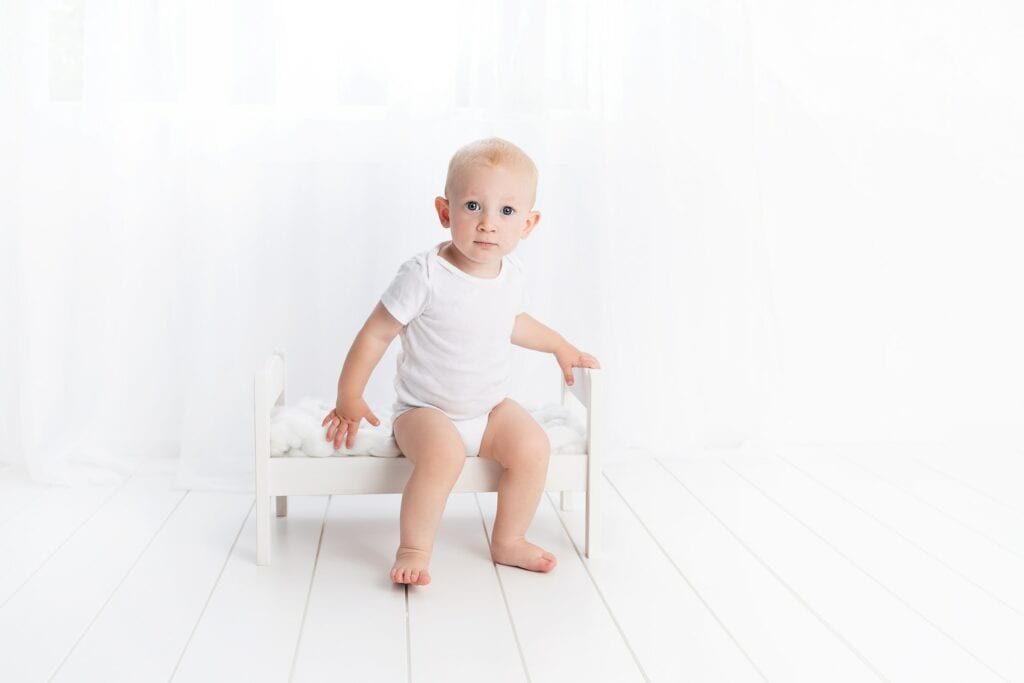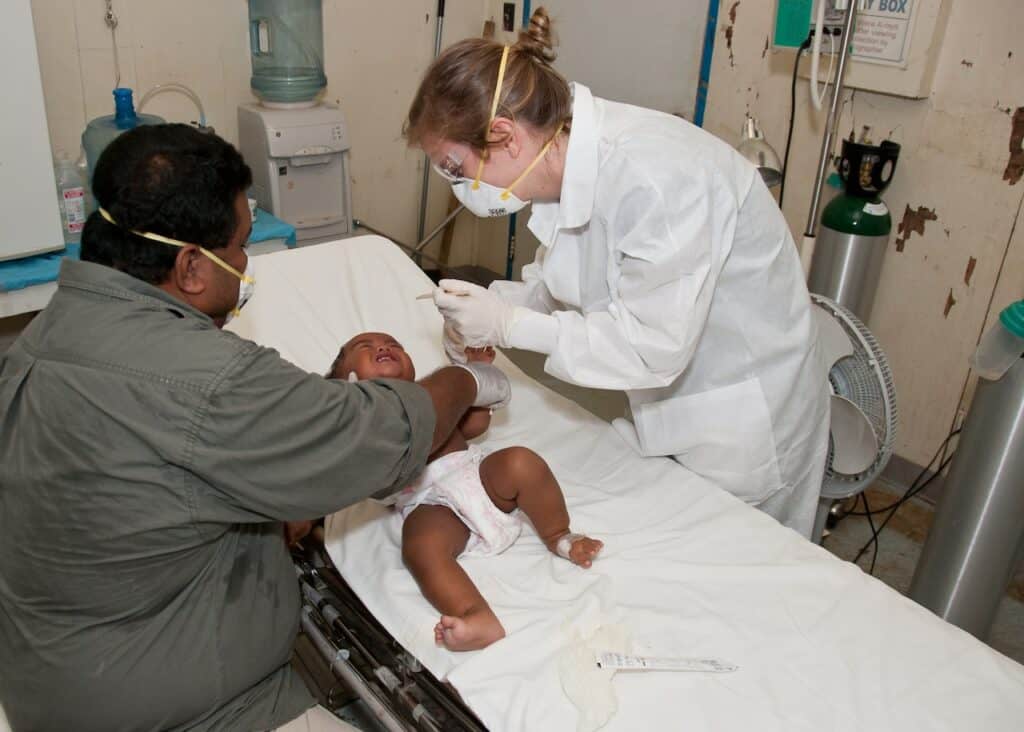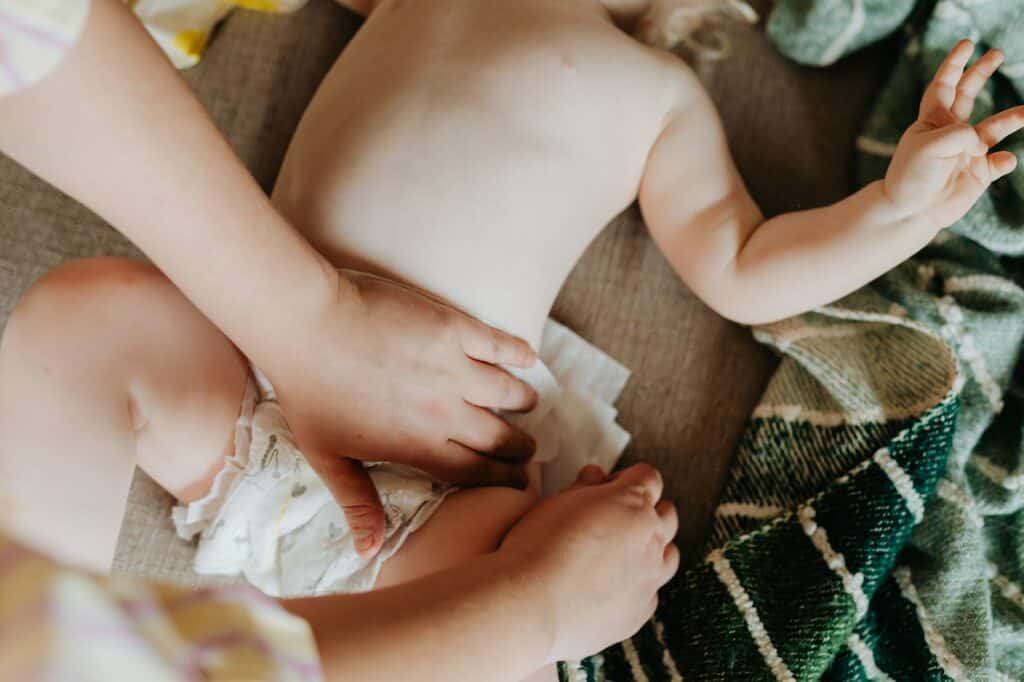Going back to diapers after potty training can be a frustrating and confusing experience for both parents and children. Potty training is a significant milestone in a child’s development, and it can be disheartening to see them revert back to old habits. However, it’s not uncommon for children to experience potty training regression, and there are steps parents can take to help their child get back on track.
Understanding the reasons behind potty training regression can be helpful in addressing the issue. Common causes include changes in routine, stress, illness, and even a new sibling. It’s important to recognize the signs and symptoms of regression, such as accidents, refusal to use the potty, and increased frequency of bedwetting. Once regression is identified, parents can take a proactive approach to help their child get back on track.
One approach to address potty training regression is to go back to using diapers temporarily. While it may seem counterintuitive, returning to diapers can help reduce stress and anxiety for both parents and children. This can give the child a break from the pressure of using the potty and allow them to regain confidence. Additionally, establishing a consistent routine, positive reinforcement, and seeking medical advice if necessary can all be effective strategies in addressing potty training regression.
Key Takeaways
- Potty training regression is common and can be caused by changes in routine, stress, and illness.
- Going back to diapers temporarily can help reduce stress and anxiety for both parents and children.
- Establishing a consistent routine, positive reinforcement, and seeking medical advice if necessary can all be effective strategies in addressing potty training regression.
Understanding Potty Training
Potty training is a major milestone for young children, and it can be an exciting and challenging time for both children and parents. It is a process of teaching the child to use the toilet instead of wearing diapers. The age at which children are ready for potty training can vary, but most children are ready between the ages of 18 months and 3 years.

The readiness of a child for potty training is an important factor to consider. It is not recommended to start potty training before the child shows signs of readiness. Signs of readiness include showing interest in the toilet or potty chair, being able to follow simple instructions, and having regular bowel movements.
There are different potty training methods, and each child may respond differently to them. Some parents prefer to use a potty chair, while others prefer to use a toilet seat adapter. It is important to choose a method that works for both the child and the parent.
During the potty training process, it is important to be patient and supportive. Accidents are common, and it is important to avoid punishment or shaming the child. Positive reinforcement, such as praise and rewards, can be effective in encouraging the child to use the toilet.
In summary, potty training is a process of teaching young children to use the toilet instead of wearing diapers. It is important to wait until the child shows signs of readiness and to choose a method that works for both the child and the parent. Patience and support are key during the potty training process.
Common Causes of Potty Training Regression
Potty training regression is a common occurrence in toddlers who have previously been successfully potty trained. It can be frustrating for parents and caregivers, but it is important to understand the underlying causes to address the issue effectively.
Stress is one of the most common causes of potty training regression. Toddlers may experience stress due to a variety of reasons, such as changes in routine, family conflict, or divorce. This stress can cause them to revert back to old habits, including using diapers instead of the potty.
Constipation can also lead to potty training regression. When a child is constipated, they may avoid using the bathroom altogether, leading to accidents and a return to using diapers.
The arrival of a new baby or sibling can also cause potty training regression. Toddlers may feel anxious or jealous about the new addition to the family and may seek comfort in using diapers again.
Anxiety and fear can also play a role in potty training regression. Toddlers may become afraid of the bathroom or the toilet, making it difficult for them to use the potty.
Changes in routine, such as starting a new daycare or preschool, can also lead to potty training regression. Toddlers may feel overwhelmed by the new environment and may struggle to adjust to the new bathroom routine.
It is important to address the underlying causes of potty training regression to help toddlers get back on track with their potty training. By identifying and addressing the root cause, parents and caregivers can help toddlers feel more comfortable and confident using the potty again.
Signs and Symptoms of Potty Training Regression
Potty training regression can happen at any time, even after a child has been fully potty trained for months. It can be frustrating for both the child and the parents, but it is important to understand the signs and symptoms so that it can be addressed appropriately.

1. Accidents
One of the most obvious signs of potty training regression is when a child starts having accidents again. This could be due to a variety of reasons, including a change in routine or schedule, discomfort, or even a urinary tract infection.
2. Progress
If a child was making progress in their potty training and suddenly starts having accidents again, it could be a sign of regression. This could be due to a change in expectations or a struggle with control.
3. Underwear and Pants
If a child who was previously comfortable wearing underwear or pants suddenly refuses to wear them, it could be a sign of potty training regression. This could be due to discomfort or a desire to go back to wearing diapers.
4. Setbacks
Setbacks are common during potty training, but if a child starts having more setbacks than progress, it could be a sign of regression. This could be due to a change in routine or expectations.
5. Urinary Tract Infections
Urinary tract infections can cause a child to have accidents, even if they were previously potty trained. If a child is having more accidents than usual and is showing signs of discomfort or pain, it is important to check for a urinary tract infection.
6. Bowel Movements
If a child was previously able to use the potty for bowel movements but starts having accidents, it could be a sign of regression. This could be due to discomfort or a change in routine.
7. Words
If a child was previously able to communicate their need to use the potty but stops using words or signals, it could be a sign of regression. This could be due to a change in expectations or a struggle with control.
8. Expectations
If a child was previously meeting expectations for potty training but suddenly stops, it could be a sign of regression. This could be due to a change in expectations or a struggle with control.
9. Accidents on Purpose
If a child starts having accidents on purpose, it could be a sign of regression. This could be due to a desire to go back to wearing diapers or a struggle with control.
10. Discomfort
If a child is showing signs of discomfort or pain when using the potty, it could be a sign of regression. This could be due to a urinary tract infection or other medical issue.
11. Toddler Suddenly Having Accidents
If a toddler who was previously potty trained suddenly starts having accidents, it could be a sign of regression. This could be due to a change in routine or expectations.
12. Potty Training Regression in 2-Year-Olds
Potty training regression can happen in 2-year-olds just as easily as it can in older children. It is important to watch for signs of regression and address them appropriately.
13. Potty Training Regression in 3-Year-Olds
Potty training regression can happen in 3-year-olds just as easily as it can in younger children. It is important to watch for signs of regression and address them appropriately.
Going Back to Diapers After Potty Training
Sometimes a potty-trained toddler may regress and start having accidents again. In some cases, a parent may decide to go back to using diapers temporarily until the child is ready to resume potty training.
When going back to diapers after potty training, it’s important to keep in mind that the child may feel confused or upset. It’s important to explain to the child why they are going back to diapers and reassure them that it’s okay.

Diapers can be a helpful tool during this transition period. They provide a sense of security for the child and can prevent accidents. However, it’s important to note that diapers should not be used as a punishment or a way to shame the child for having accidents.
Training pants can also be a useful option when going back to diapers after potty training. They are designed to look and feel more like underwear, but provide some protection in case of accidents.
It’s important to continue encouraging the child to use the potty and praise them when they do. Going back to diapers should only be a temporary solution until the child is ready to resume potty training.
In summary, going back to diapers after potty training can be a helpful tool during a regression period. Diapers and training pants can provide a sense of security for the child, but it’s important to continue encouraging the child to use the potty and not use diapers as a punishment.
Approaches to Address Potty Training Regression
Potty training regression is a common issue that parents face when their child goes back to using diapers after being potty trained. Although it can be frustrating, it is important to remember that it is a normal part of the potty training process, and with patience and consistency, it can be addressed.
One approach to address potty training regression is by using positive reinforcement and encouragement. Parents can praise their child for using the potty and offer small rewards such as stickers or a special treat. This can help motivate the child to continue using the potty and reduce the likelihood of regression.
Taking a break from potty training can also be helpful. If the child is resistant to using the potty or experiencing anxiety, it may be beneficial to take a break and resume potty training at a later time. This can give the child time to develop the necessary skills and reduce stress.
Consistency is key when addressing potty training regression. Parents should maintain a consistent routine and environment to help the child feel comfortable and confident using the potty. Reminders such as setting a timer or having a designated potty time can also be helpful.
A reward system such as a sticker chart can also be effective in addressing potty training regression. Each time the child successfully uses the potty, they can earn a sticker, and after a certain number of stickers, they can receive a larger reward. This can help motivate the child to continue using the potty and reduce the likelihood of regression.
Lastly, parenting tips such as staying calm and patient can help when addressing potty training regression. It is important to remember that regression is a normal part of the process and to avoid making exaggerated or false claims. With time and effort, most children will successfully transition from diapers to using the potty.
When to Seek Medical Advice
If an adult decides to go back to diapers after potty training, it is generally considered a personal choice and not a medical issue. However, there are some situations where seeking medical advice may be necessary.

Firstly, if an individual experiences any health issues or medical conditions that affect their ability to control their bladder or bowels, they should consult with their doctor. Such conditions may include neurological disorders, spinal cord injuries, or other physical issues that affect the muscles and nerves responsible for bladder and bowel control.
Additionally, if an individual experiences frequent urinary tract infections or other medical issues related to the urinary system, it is important to seek medical advice. These issues can be indicative of underlying health problems that require treatment.
It is also important to consult with a pediatrician if a child who has previously been potty trained begins to experience issues with bladder or bowel control. This may be a sign of an underlying medical condition that requires attention.
In summary, while going back to diapers after potty training is generally a personal choice, it is important to seek medical advice if there are any underlying health issues or medical conditions that may be contributing to the decision.
The Role of Lifestyle and Routine in Potty Training
Potty training is a significant milestone for toddlers, but it can also be a challenging process for parents. One of the critical factors that can affect the success of potty training is the child’s lifestyle and routine.
Lifestyle
A child’s lifestyle can have a significant impact on their potty training progress. For example, children who spend most of their time at home may have an easier time with potty training than children who attend daycare or preschool. This is because children who are home can have more frequent opportunities to use the potty, and parents can monitor their progress more closely.
Additionally, a child’s diet can also affect their potty training success. Foods that are high in fiber can help regulate bowel movements, making it easier for children to control their bladder and bowels. On the other hand, sugary and processed foods can cause constipation and make potty training more challenging.
Routine
Establishing a routine is crucial for successful potty training. Parents should create a consistent schedule for their child to follow, including regular times for meals, naps, and potty breaks. This routine can help children learn when it’s time to use the potty and reduce accidents.
It’s also essential to be patient and consistent during the potty training process. Children may experience potty-training regression, where they revert to using diapers or having accidents, but this is normal. Parents should continue to encourage their child and provide positive reinforcement for their efforts.
Child Care
For children who attend daycare or preschool, it’s essential to communicate with the caregivers about the child’s potty training progress. Parents should provide clear instructions on the child’s routine and any specific needs they may have. Consistency between home and childcare can also help with potty training success.
In conclusion, a child’s lifestyle and routine play a significant role in their potty training success. Parents should create a consistent routine, provide a healthy diet, and be patient and consistent during the process. With time and effort, most children will successfully transition from diapers to using the potty.
The Impact of Emotions on Potty Training
Potty training can be a challenging experience for both toddlers and their parents. It requires patience, consistency, and a lot of positive reinforcement. However, emotions can play a significant role in the success or failure of potty training.

When a child is punished for accidents or not using the potty, it can create negative emotions and anxiety around potty training. This can lead to regression and make it more difficult for the child to learn and use the potty consistently.
On the other hand, staying calm and positive can make a big difference. When a child senses frustration or anger from their parent, it can create a stressful environment that can hinder progress. Instead, parents should remain calm, patient, and supportive, even when accidents happen.
Shame is another emotion that can impact potty training. If a child feels ashamed or embarrassed about accidents, they may become more resistant to using the potty. Parents should avoid shaming their child and instead focus on positive reinforcement and encouragement.
It’s important to remember that every child is different and may respond differently to emotions during potty training. Some children may thrive on positive reinforcement, while others may need more structure and consistency. It’s up to parents to find what works best for their child and adjust their approach accordingly.
Overall, emotions can have a significant impact on potty training. Parents should focus on creating a positive and supportive environment, avoiding punishment and shame, and finding what works best for their child.
Related posts:
Frequently Asked Questions
What causes potty training regression?
Potty training regression can be caused by a variety of factors, including changes in routine, stress, illness, or a new sibling. It can also be caused by a lack of consistency in the potty training approach or a child feeling overwhelmed or pressured during the process.
How can I help my child restart potty training?
To help your child restart potty training, it is important to be patient and supportive. Start by reintroducing the potty and encouraging your child to use it. Use positive reinforcement, such as praise or small rewards, to encourage success. It may also be helpful to create a consistent routine, such as taking your child to the potty at regular intervals throughout the day.
Is it normal for a child to regress in potty training?
Yes, it is normal for a child to experience potty training regression. It is a common occurrence and can happen for a variety of reasons. It is important to remain patient and supportive during this time and to work with your child to help them regain their potty training skills.
What are some signs of potty training regression?
Signs of potty training regression can include accidents, refusing to use the potty, or asking to wear diapers again. Your child may also become more resistant to the potty training process or show signs of anxiety or stress related to using the potty.
How long does potty training regression last?
The length of potty training regression can vary from child to child and depends on the cause of the regression. It may last for a few days or several weeks. It is important to remain patient and consistent during this time and to continue to encourage your child to use the potty.
Should I put my child back in diapers during potty training regression?
It may be helpful to put your child back in diapers during potty training regression, especially if they are experiencing a lot of accidents or anxiety related to using the potty. However, it is important to continue to encourage your child to use the potty and to work with them to regain their potty training skills. It is also important to avoid shaming or punishing your child for accidents or regression.

Iesha is a loving mother of 2 beautiful children. She’s an active parent who enjoys indoor and outdoor adventures with her family. Her mission is to share practical and realistic parenting advice to help the parenting community becoming stronger.
